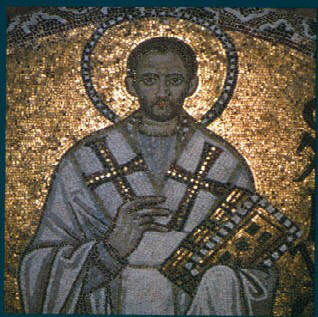
Pain cries out for explanation. When bad things happen, a scream of "WHY?!" erupts from our deep places. The question is not generic -- it is directed at God. How could God allow such things? Such considerations, I believe, drive us to rethink our theologies.
Open Theism, or the idea that God does not have exhaustive foreknowledge, is born from pastoral concerns like suffering. It helps soothe the throbbing feeling of abandonment we often experience during our pain. But in embracing such a balm, do we forfeit a more powerful grace?
In the upper room, hours before his arrest, Jesus delivers the shocking news to Peter:
You will deny me three times. Peter is incredulous.
Me? Never! But he is so wrong. The pain will be overwhelming.
Now, I must ask, as a faithful student of Scripture, "Why did Jesus reveal this fact to Peter in advance?" and, "Why did Matthew, Luke and John feel it was important enough to record?"
Here's my best answer:
Jesus' prediction allowed Peter to experience security in God's love. It is a powerful truth that God's
acceptance of us is grounded in a
knowledge of us that is utterly unbounded. You cannot surprise God; you cannot
disappoint God. There is no sin you can commit that will change God's estimation of you. The day He welcomed you into His kingdom -- that very day -- he already knew your entire biography. Past, present and future.
Imagine you are Peter. You have just betrayed your Lord and friend. Then, a cock crows, and mercifully, Jesus' words fill your consciousness:
You will deny me three times. You realize the shocking truth:
He already knew, and yet he loved me.
 Here are some of the more memorable thought-bites I've heard so far:
Here are some of the more memorable thought-bites I've heard so far:








